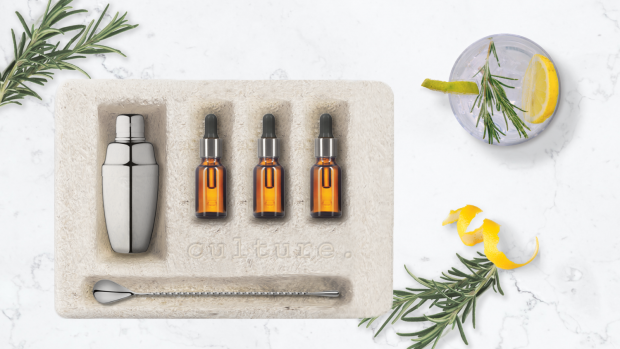Students compete for the “Glass Microbe” and other prizes at the annual Biodesign Challenge

A Microbial Memory Kit developed by a student team entered in the Biodesign Challenge
UPDATE 6/22/2020: Nikhil Kumar, Sara Nejad took home the Science Sandbox Prize for Public Engagement for their project, Microbial Memories!
Biodesign — the word itself might conjure images worthy of a science fiction novel, but in reality, human beings have been reshaping living things for their own purposes for centuries. Now, with advances in genetic engineering and synthetic biology making the formerly unimaginable not only imaginable but possible, practitioners comfortable working at the intersections of biology, technology, art, and design are needed.
The Biodesign Challenge, which launched in 2015, seeks to find a new generation of interdisciplinary thinkers able to cross disciplines, anticipate promises and pitfalls, and engage in dialogue about the broader implications of emerging biotech.
This year finalists will take part in a virtual summit from June 15-19, and of the 45 teams in the current competition, two are from NYU Tandon’s Integrated Digital Media (IDM) program. Working under the guidance of Assistant Professor Elizabeth Hénaff, the teams are:
Microbial Memories
(Nikhil Kumar, Sara Nejad)
Kumar and Nejad explain that microorganisms are vehicles for exchange, diversity, and human connection, while still capturing individual identities in their full complexity, and they intend Microbial Memories to be a reflection on the possibilities of using microbiomes as a form of cultural archive. Based on the emerging science linking microbiomes to terroir in wine and other foods, they imagine a future in which people can capture place and time with the microorganisms living in that exact moment.
Microbial Memories is in contention for the Science Sandbox Prize for Public Engagement, a sponsored award that recognizes the project that best explores the multitude of impacts biotechnology can have on society and challenges cultural norms around human identity, social relationships, and ultimately humanity’s place in the living world.
mod Mask
(Andrew Lau, Alexandra van Wert, Alejandro Ribadeneira, Henry Haoyu Wang)
The mod Mask team has explored the connection between inhalation, the olfactory system, and human wellbeing, and their project aims to take the latest innovations in bioelectronic olfactory sensors, filtration material, and aerosolized healthcare technology to provide a more integrated experience with the environment.
Designed with six layers of protection, from memory foam nasal support to filtration material for particulate matter up to 2.5 microns, mod Mask is built for long-term functionality as a reusable accessory that allows wearers to experience customized control over the air they breathe.
The team is vying for the Glass Microbe, a sculpture awarded to the overall winner.
ITZ BioLab, by Gallatin Environmental Design, Biomimicry, and Sustainable Business student Annick Saralegui, is also in the running for the Science Sandbox Prize for Public Engagement. Saralegui aims to rebuild physical connections with soil and radically transform perceptions of it as merely “dirt,” but rather as a medium that can serve as a strong, natural localized, infrastructure material.
While winning one of the awards is a great honor, much more is at stake. Past teams have turned their projects into venture-backed companies and have collectively raised more than $2.5 million in funds. Their projects and designs have won such prizes as the H&M Global Change Award and the National Geographic Chasing Genius Award. They have also exhibited at museums, galleries, and design festivals around the world, including Dutch Design Week, NYCxDesign, London Design Festival, the Tech Museum, and others.




